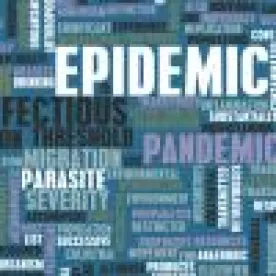On December 16, 2014, President Barack Obama signed into law a $1.1 trillion appropriations act that allocates approximately $5.4 billion in emergency funding to support the U.S. Government’s response to the Ebola outbreak in West Africa. Although this funding falls short of the Administration’s initial $6.18 billion request—approximately $1.54 billion of which was to be allocated to a contingency fund similar to appropriations made in response to pandemic influenza—all emergency funding for Ebola provided by the act is available for immediate use. The funding is split between the Department of Health and Human Services (“HHS”), the Department of Defense (“DoD”), the Department of State, and the Agency for International Development (“AID”). Government contractors and grant recipients can expect these agencies to use their respective shares of the funding to create a number of opportunities in the coming months.
A large portion of the approximately $2.8 billion appropriated to HHS, for example, can be used to fund research and development, preparedness, and stockpiling activities. Within this amount, a significant portion of the approximately $1.8 billion allocated to the Centers for Disease Control (“CDC”), the $238 million allocated to National Institute of Allergy and Infectious Diseases, and the $733 million allocated to the Public Health and Social Services Emergency Fund—which has been used to support the activities of the Biomedical Advanced Research and Development Authority (“BARDA”)—may be used for research and development purposes. As we have previously discussed, BARDA is already actively seeking to develop countermeasures for Ebola. In addition, a significant amount of the funds provided to the CDC and the Public Health and Social Services Emergency Fund may be used to purchase countermeasures for the Strategic National Stockpile. Portions of the funding may also be used to renovate privately owned facilities to improve preparedness and response capabilities at the state and local level, and to construct and manage facilities outside the United States in support of the CDC’s efforts to combat Ebola.
Of the $112 million appropriated to DoD, $17 million is allocated to procurement efforts and $95 million is allocated to research and development. The Defense Threat Reduction Agency (“DTRA”) and the Defense Advanced Research Projects Agency (“DARPA”) may soon be using this funding to create additional opportunities for contractors and grant recipients to assist in the fight against Ebola. As we have previously discussed, DTRA is already seeking near-term solutions to the Ebola outbreak. DARPA also recently issued a solicitation targeting new entrants into government contracting that seeks proposals to develop solutions in a number of technical areas, including infectious disease.
A significant amount of the approximately $2.5 billion appropriated to the Department of State and AID is allocated to diplomatic programs and foreign assistance, including global health programs. Although not explicitly provided for in the act, this funding may be used to support research and development contracts similar to AID’s recent efforts to support the development of solutions to obstacles faced by health care workers responding to the Ebola outbreak, as well as service contracts to support the Department of State and AID in West Africa.
The emergency funding provided by the act comes less than one week after the Secretary of HHS issued a declaration under the Public Readiness and Emergency Preparedness Act, providing individuals and companies involved in the development of three Ebola vaccine candidates with protection from liability in the performance of government contracts, grants, and other agreements. This support, as well as the President’s recent grant of indemnification authority under Public Law 85-804 to the Administrator of AID—which authorizes AID to indemnify contractors for liability arising out of contracts performed in support of AID’s work in West Africa—confirm the U.S. Government’s commitment to encourage the participation of private industry in the U.S. Government’s response to the Ebola outbreak.





 />i
/>i


